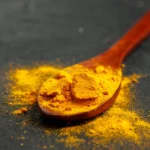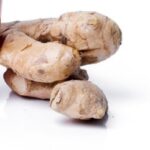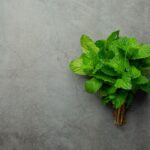Introduction
An allergy is the body’s immune system overreacting to a normally harmless substance, known as an allergen. When the body encounters an allergen, it causing symptoms such as sneezing, itching, or inflammation.

Common Allergy Triggers
Allergens can come from various sources, including the environment, food, and personal care products. Product found naturally in our daily bases, can treat our allergic condition are called natural herbs for allergy relief. Some of the most common triggers are:
1. Environmental Allergens
Pollen (from trees, grass, and flowers) causes seasonal allergies like fever.
Dust mites – tiny bugs found in bedding, carpets, and upholstery.
Pet dander – flakes of skin from cats, dogs, and other furry animals.
Mold spores – present in damp areas like bathrooms and basements.
Smoke & Pollution – irritants that can worsen respiratory allergies.
2. Food Allergens
Dairy (Milk, Cheese, Yogurt) – triggers digestive and respiratory reactions.
Nuts (Peanuts, Almonds, Walnuts) – can cause severe allergic reactions, including anaphylaxis.
Shellfish (Shrimp, Crab, Lobster) – common trigger of hives and breathing difficulties.
Eggs, Soy, and Wheat – cause food allergies in some individuals.
3. Chemical & Contact Allergens
Strong Fragrances & Perfumes – can irritate the respiratory system.
Certain Medications (Antibiotics, Aspirin) – may cause rashes, swelling, or breathing problems.
Cosmetics & Skincare Products – preservatives and artificial dyes can trigger skin allergies.
Nickel & Latex – found in jewelry and gloves, causing skin rashes.
Common Symptoms of Allergies
Allergy symptoms vary based on the type of allergen and individual sensitivity. The most common symptoms include:
Respiratory Symptoms: Sneezing, runny or blocked nose, coughing, wheezing, difficulty breathing.
Skin Reactions: Itchy skin, hives, eczema, redness, swelling.
Eye Irritation: Itchy, watery, or red eyes.
Digestive Issues (in case of food allergies): Nausea, vomiting, stomach pain, diarrhea.
Severe Allergic Reaction (Anaphylaxis): Swelling of the throat, difficulty breathing, drop in blood pressure, which can be life-threatening.
Why Consider Natural Alternatives?
Herbs for allergy and natural remedies provide long-term relief without dependency. They boost immunity of just suppressing symptoms. Fewer side effects compared to synthetic drugs.
How Herbs for Allergy Relief Works Naturally
Allergies can make life uncomfortable, causing sneezing, congestion, itchy eyes, and skin irritation. While conventional medicines offer quick relief, they often come with side effects like drowsiness, dependency, and long-term health risks. This is where natural herbs step in as a gentler, more sustainable solution.
Herbs have been used for centuries in traditional medicine to calm the immune system, reduce inflammation, and minimize allergic reactions. Unlike synthetic antihistamines, which block symptoms temporarily, herbal remedies work holistically by strengthening the body’s natural defenses and reducing the severity of allergic responses over time.
1. Herbs as Natural Antihistamines
When you come into contact with an allergen, your body releases histamine, which triggers sneezing, itching, and swelling. Many natural herbs act as natural antihistamines, helping to regulate this response without the sedative effects of over-the-counter drugs.
 Butterbur: A powerful herb known to block histamine and reduce nasal congestion. Studies suggest it works as effectively as some antihistamine medications.
Butterbur: A powerful herb known to block histamine and reduce nasal congestion. Studies suggest it works as effectively as some antihistamine medications.
Quercetin (Found in Onions, Green Tea, and Apples): This natural compound stabilizes mast cells, preventing them from releasing excess histamine.
2. Herbs that Reduce Inflammation
Inflammation is a key factor in allergy symptoms. Herbs with anti-inflammatory properties help soothe irritated airways, reduce swelling, and ease discomfort.

Turmeric: Rich in curcumin, turmeric has strong anti-inflammatory effects, helping with respiratory allergies and skin reactions.

Ginger: Acts as a natural decongestant, reducing mucus buildup and improving breathing.
3. Immune-Boosting Herbs
A strong immune system can help your body handle allergens more effectively, reducing the frequency and intensity of reactions.
Nettle Leaf: Known as a natural allergy fighter, it helps regulate the immune response and reduces symptoms like sneezing and itching.
Elder berry: Boosts immunity and helps the body fight off seasonal allergies and colds.
4. Herbs that Support Respiratory Health
For those suffering from nasal congestion, asthma, or sinus issues due to allergies, certain herbs for allergy can act as natural decongestants.
 Peppermint: Contains menthol, which opens up airways and provides relief from nasal congestion.
Peppermint: Contains menthol, which opens up airways and provides relief from nasal congestion.
Licorice Root: Helps soothe irritated airways and reduce allergic cough.
Why One Should Use Natural Herbs for Allergy Relief
Many people are now turning to herbal remedies because they:
1. Work with the body’s natural processes instead of suppressing symptoms.
2. Have fewer side effects compared to conventional allergy medications.
3. Support overall health and well-being rather than just providing temporary relief.
However, it’s important to remember that herbal remedies work best as part of a long-term wellness plan. If you have severe allergies or are on medication, consulting a healthcare provider before using herbs is always a good idea.
By embracing the power of nature, we can find relief from allergies in a way that’s not only effective but also nourishing for our bodies. After all, nature has been healing us for centuries ,why not let it help us breathe easier too?
Beside of above mentioned herbs for allergic condition have wide range.
Benefits of Detoxing with Natural Ingredients
FAQs:
Natural Herbs for Allergy Relief
1. Can natural herbs for allergies really help ?
Absolutely! Many herbs have natural antihistamine and anti-inflammatory properties that help reduce allergy symptoms like sneezing, congestion, and itchy eyes. While results vary from person to person, many people find herbal remedies to be a gentle and effective alternative to conventional medications.
2. How long does it take for herbs to show results in allergy relief?
Herbs don’t always offer instant relief like pharmaceutical drugs, but with consistent use, you may start noticing improvements in a few days to a couple of weeks. Think of herbal remedies as long-term allies that work with your body to build resilience over time.
3. Are there any side effects of using herbs for allergies?
Most herbs are generally safe when used appropriately. However, just like any natural substance, some people may experience mild reactions or sensitivities. It’s always wise to start with a small dose and consult a healthcare provider, especially if you’re pregnant, breastfeeding, or on medication.
4. Can I use herbal remedies along with my regular allergy medicine?
In many cases, yes but with caution. Some herbs can interact with prescription drugs. For example, licorice root may affect blood pressure or interfere with certain medications. It’s best to talk to your doctor or a qualified herbalist before combining treatments.
5. Which herb is best for seasonal allergies?
Nettle leaf and butterbur are two of the most recommended herbs for seasonal allergies. They help ease symptoms like sneezing, runny nose, and itchy eyes without causing drowsiness. Quercetin (found naturally in foods and supplements) is also great for controlling histamine response.
6. Can kids use herbal remedies for allergies?
Some herbal remedies are safe for children, but the dosage and safety vary depending on the child’s age and the specific herb. Always consult a pediatrician or herbal expert before giving herbs to kids.
7. Are herbal teas effective for allergy relief?
Yes, herbal teas like peppermint, ginger, nettle, or chamomile can help soothe allergy symptoms. They hydrate the body, ease sinus congestion, and deliver allergy-fighting compounds in a warm, comforting form.
8. Do I need to take herbs year-round or only during allergy season?
That depends on your allergy pattern. For seasonal allergies, you can start taking herbs a few weeks before your symptoms usually start. If your allergies are year-round, a daily low-dose herbal routine might help build long-term tolerance.
9. Are there any herbs I should avoid if I have asthma?
Some herbs like ephedra can trigger asthma symptoms and should be avoided. Even safe herbs should be introduced slowly and monitored carefully. Always consult with your doctor if you have asthma or any respiratory condition.
10. How can I tell if a herbal remedy is working for me?
Listen to your body. You might notice less sneezing, easier breathing, or better sleep after a week or two of consistent use. Keep a simple symptom journal to track your progress it can help you fine-tune your herbal routine.
Pingback: For Depression and Anxiety 7 Ayurvedic Herbs